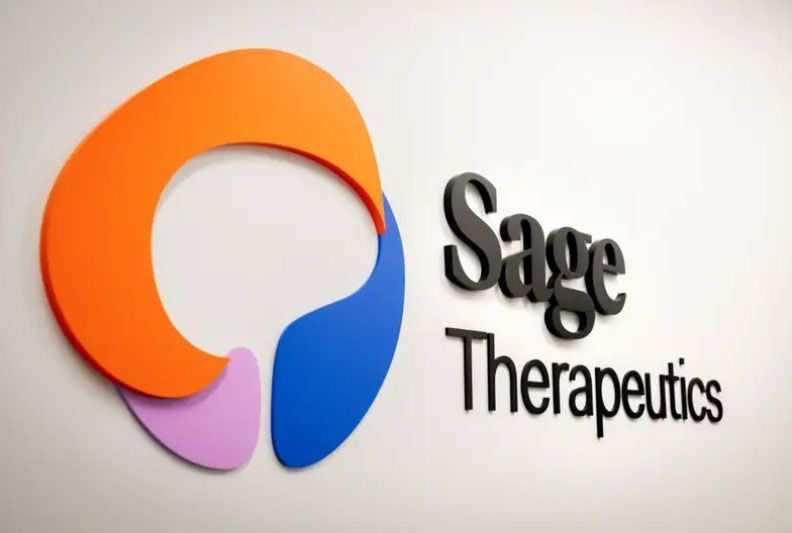The top doctor at a $2.7 billion pharma company developing a new depression drug says we may be 'on the cusp' of a new wave of mental-health treatments
Years ago, Big Pharma had all but left psychiatry behind. Having undertaken large, disappointing failed trials they had hoped would lead to new and profitable treatments, big companies folded up their ambitious plans.
But smaller biotech companies continued to plug away at research and development, hoping to create better treatments.
And now, their labor may be paying off.
That's according to Laura Gault, the chief medical officer at Sage Therapeutics, a Massachusetts-based company working to develop a new antidepressant drug, called zuranolone. The company recently asked US regulators to approve the drug as a treatment for people with postpartum depression and major depressive disorder, citing data that the drug improved symptoms of those disorders in patients.
"Psychiatry is really on the cusp of having novel medicines that are really effective and work in different ways from what we've had," Gault said.

Laura Gault, the chief medical officer at Sage Therapeutics. Sage Therapeutics
Gault said that as a result of the research mental-health professionals have conducted over the past few years, we now have a more sophisticated understanding of depression and other psychiatric disorders. These advances in science, she said, can now be translated to clinical trials.
"It's really exciting to see and I'm really hopeful that in the next five to 10 years we're going to see a resurgence of novel approaches, new treatments, and effective treatments for patients with psychiatric disease," she told Insider.
Sage is developing zuranolone through a partnership with the biotech company Biogen. Last week, the companies announced that the Food and Drug Administration is set to make a decision on whether to approve the treatment by August 5.
Sage's stock has climbed 7.9% in the past 12 months, giving the company a market value of about $2.7 billion.
Unlike most other antidepressants, zuranolone is designed to be taken for a short period of time
In trials, zuranolone has improved symptoms of major depressive disorder and postpartum depression. The drug is designed to be an episodic treatment, which means patients take the pill once a day for two weeks, and then stop.
Most antidepressants on the market today are thought to work by boosting the activity of neurotransmitters, or chemical signals in the brain that affect mood and emotions. Zuranolone works differently. Instead of affecting neurotransmitters, the drug affects the GABA-A receptor in the brain, which may play a role in depression.
Zuranolone has been tested across seven trials for both major depressive disorder and postpartum depression. While a late-stage trial to test the drug in MDD patients failed in 2019, a similar study in 2021, called WATERFALL, showed the drug helped to improve depression symptoms compared to a placebo.
If approved, zuranolone would join a crowded marketplace of generic antidepressants. Chris Benecchi, Sage's chief business officer, said that despite the competition, he believes zuranolone will be an attractive option, especially for patients whose current treatment regimen isn't working. About one-third of people who try antidepressant treatments don't get better.
"The more rapidly we can intervene and help a patient get to a response and remission, the better the long-term outcomes for that patient," Benecchi said. He declined to say how much zuranolone will cost.
An episodic treatment could make 'a huge difference in the lives of patients'

Sage Therapeutics is developing a new antidepressant that the FDA could approve as soon as August. Sage Therapeutics
Some analysts have noted there are still open questions around how long the effects of the drug could last and what dose of the drug may work best for patients.
William Blair analysts said in a Feb. 6 note that the "marginal benefits" that zuranolone showed in trials may limit the drug's appeal for patients, compared to existing treatments.
In a late-stage study, researchers tracked 489 patients — whose depression symptoms improved with zuranolone — for a year. They found that about a quarter of the patients needed one additional course of treatment, and 30% needed three or more courses.
The researchers used two common tests to determine whether a participant was becoming depressed again and needed another course of treatment.
Sage said the median time that patients underwent a repeat course after their initial treatment was 135 days. Gault added that for participants who received a higher dose of zuranolone, the median time for retreatment extended to 249 days.
Gault said that undergoing a two-week treatment and having those effects last for months before receiving an additional course of therapy "makes a huge difference in the lives of patients."





